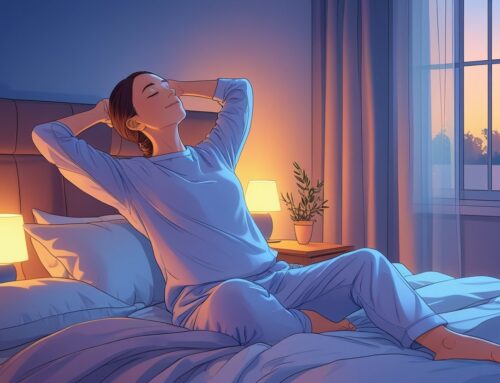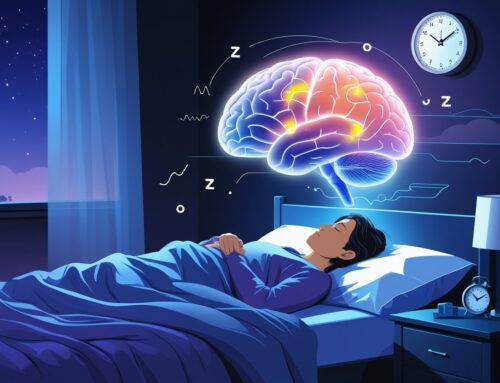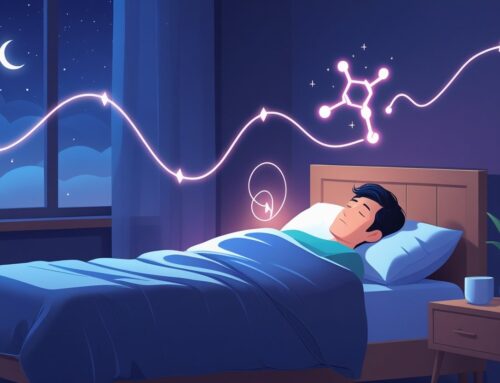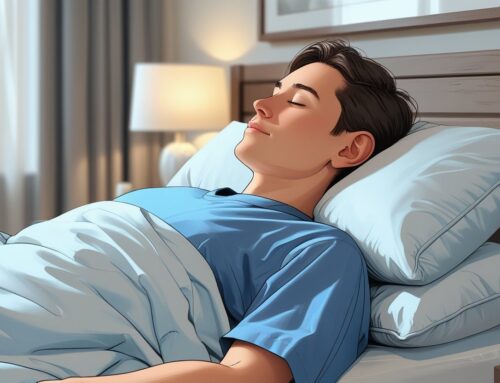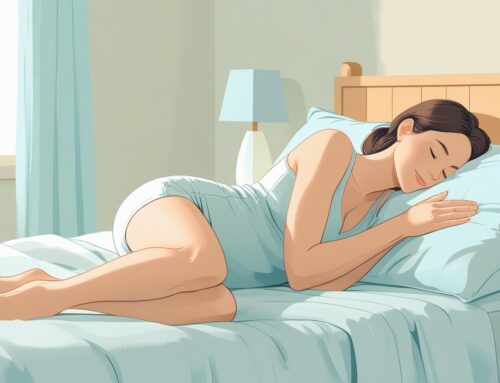Many women notice changes in their sleep during menopause. They may struggle to fall asleep, wake up frequently at night, or feel exhausted during the day. These disruptions come from hormonal shifts, particularly lower levels of estrogen and progesterone, that interfere with normal sleep patterns.
Hot flashes and night sweats are common symptoms that can make it hard to stay asleep. On top of hormonal changes, stress, mood swings, and physical discomfort can also disrupt rest. Recognizing these factors makes it easier to find solutions that support better sleep during menopause.
There are simple steps and treatment options that can ease menopause-related sleep issues. This article looks at how menopause affects sleep and offers ways to help women rest more comfortably.
Key Takeaways
- Hormonal shifts during menopause lead to sleep disturbances.
- Hot flashes and other symptoms can increase nighttime wakeups.
- Adjusting daily habits and seeking the right treatments can improve sleep quality.
- Choosing a mattress with effective cooling and pressure-relieving features can improve sleep quality for menopausal individuals by managing temperature fluctuations and soothing joint discomfort.
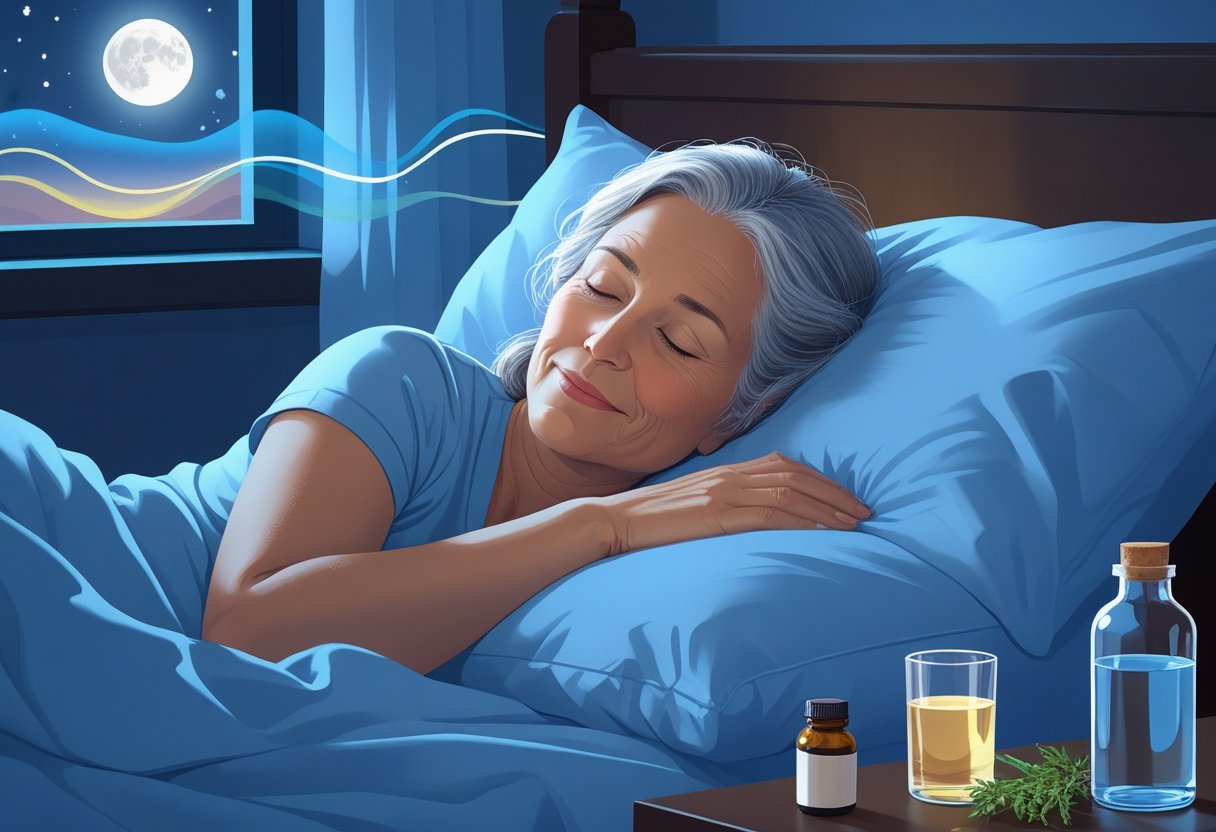
How Menopause Affects Sleep
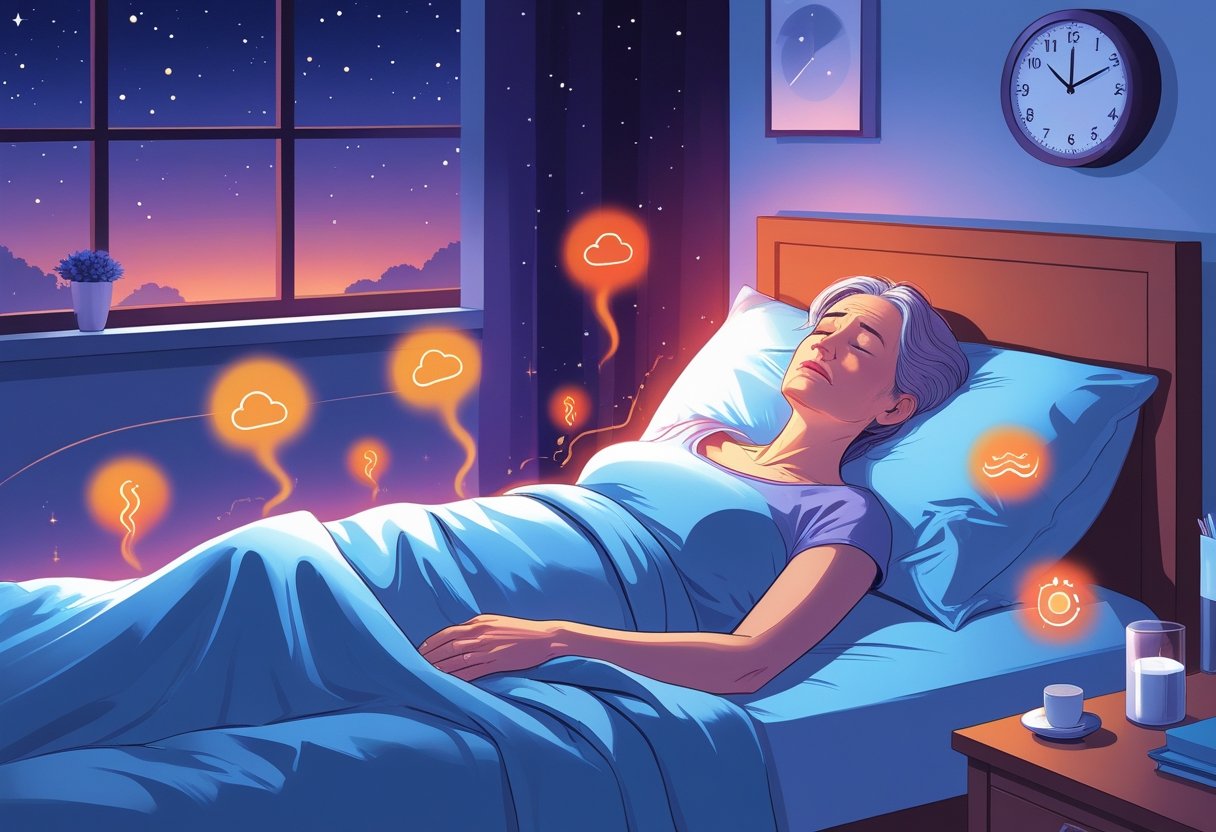
Menopause causes changes that often interfere with sleep. Hormone levels drop, and physical symptoms disrupt rest. Many women notice shifts in their sleep patterns, which makes it harder to stay asleep or wake up feeling refreshed.
Hormonal Changes and Sleep Quality
Estrogen and progesterone levels fall during menopause. These hormones help regulate sleep cycles. Lower estrogen can lead to hot flashes and night sweats, which interrupt rest. A decline in progesterone, known for its calming effects, can make falling asleep more difficult.
These hormonal changes raise the risk of insomnia. Women may wake frequently or spend less time in deep sleep. This affects how rested they feel and may lead to daytime fatigue. Shifts in hormone levels can also influence mood, adding to sleep-related challenges.
Common Sleep Disruptions During Menopause
Hot flashes and night sweats often disturb sleep during menopause. These intense heat episodes can wake women several times a night. Mood shifts such as anxiety or depression also interfere with falling or staying asleep.
Many women struggle with both sleep onset and sleep maintenance. These disruptions lead to tiredness and reduce productivity during the day. Around 61% of menopausal women report sleep difficulties. Addressing symptoms like hot flashes can significantly improve sleep quality during this stage.
Insomnia and Menopause
Menopause leads to changes in sleep patterns that cause significant disruption. Many women find it hard to fall asleep, stay asleep, or avoid waking too early. These issues stem from hormonal fluctuations and related symptoms that affect both the quality and length of sleep.
Types of Insomnia Related to Menopause
Menopausal insomnia shows up in different ways:
- Difficulty falling asleep: Feeling tired but unable to drift off.
- Frequent awakenings: Waking several times during the night triggered by hot flashes or night sweats.
- Early morning awakening: Waking too early and failing to fall back asleep.
Each type disrupts rest and leaves women feeling drained during the day. A drop in estrogen and progesterone plays a major role in these sleep problems. Anxiety, mood swings, and other mental health issues also make it harder to stay asleep.
Prevalence and Risk Factors
Sleep problems affect a large number of women during menopause. Roughly 40% to 60% report difficulty sleeping at some point. Risk factors include:
- Intense hot flashes or night sweats
- High stress or anxiety levels
- Age-related sleep changes
- Coexisting sleep disorders such as restless legs syndrome or sleep apnea
Women with a history of depression or mood disorders often face a higher risk of insomnia during menopause. Recognizing these risk factors allows for more effective symptom management.
Symptoms of Menopausal Insomnia
Common signs of menopause-related insomnia include:
- Non-restorative sleep: Waking up tired even after a full night’s rest
- Daytime sleepiness: Struggling to stay awake or feeling sluggish throughout the day
- Irritability and mood changes: Sleep deprivation can make mood swings and anxiety worse
- Cognitive issues: Trouble focusing or remembering things
These symptoms appear alongside other menopausal changes like headaches or breast tenderness, making quality sleep even harder to achieve. Successful treatment usually addresses both insomnia and its underlying hormonal causes.
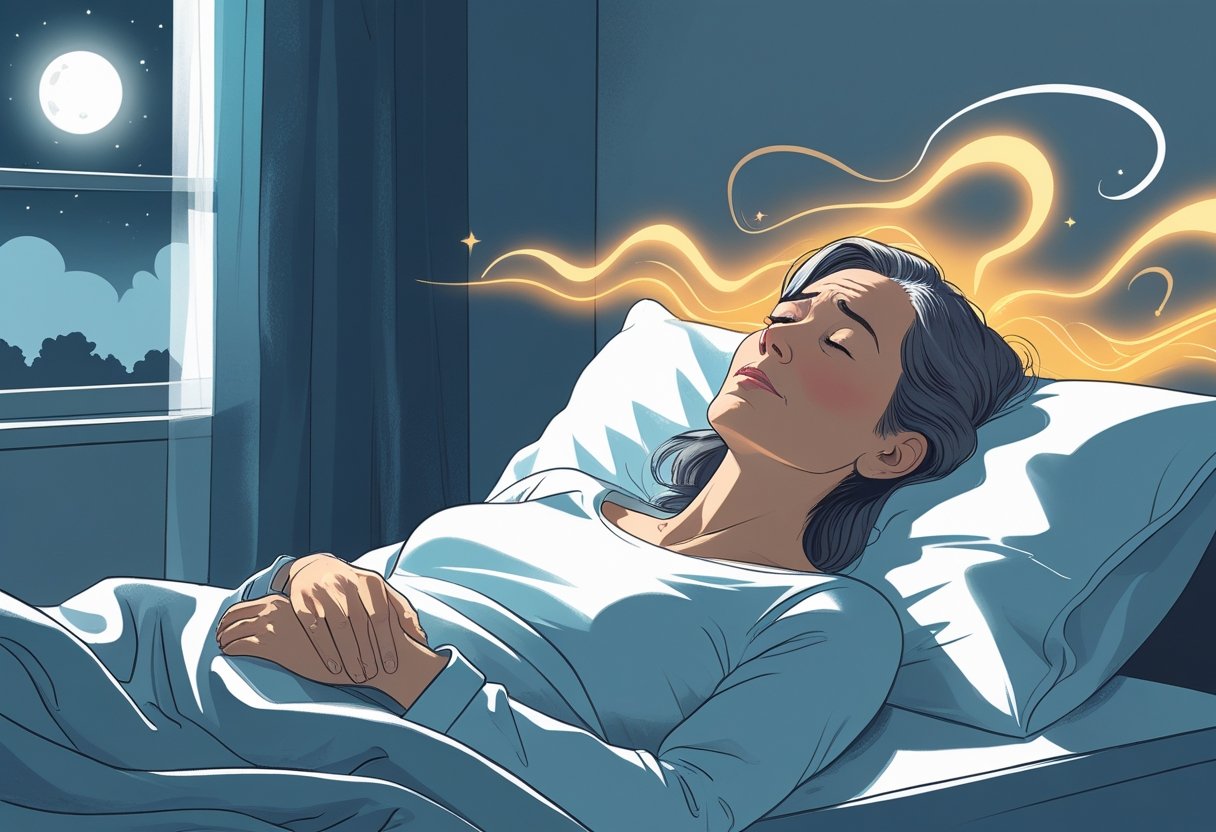
Perimenopause and Sleep Disturbances
Many women struggle with sleep during perimenopause, which can affect their overall well-being. Trouble falling asleep, waking up at night, or feeling unrefreshed in the morning are common. Understanding what changes happen and why they occur helps make these issues easier to manage.
Sleep Changes in Perimenopause
Sleep patterns shift during this stage. Many experience perimenopausal insomnia, where falling or staying asleep becomes harder. Sleep may feel lighter or more disrupted. Night sweats and hot flashes can cause sudden awakenings, which makes restful sleep harder to achieve.
Some notice shorter sleep durations and increased fatigue during the day. These issues often start before periods fully stop and may continue well into menopause. Even after a full night in bed, it’s common to wake up feeling drained.
Contributing Factors to Perimenopausal Sleep Issues
Hormonal shifts play the biggest role in disrupting sleep. Drops in estrogen and progesterone affect temperature regulation and mood, which can lead to hot flashes or heightened anxiety that interfere with sleep.
Other triggers include higher stress levels, shifts in the body’s internal clock, and poor sleep habits. Irregular routines, long naps, or late-night screen time can make things worse. Experts often recommend consistent bedtimes, limiting naps, and calming bedtime rituals to improve rest.
When you combine hormone changes with lifestyle stressors, it’s no surprise that 40–60% of women experience sleep problems during perimenopause.
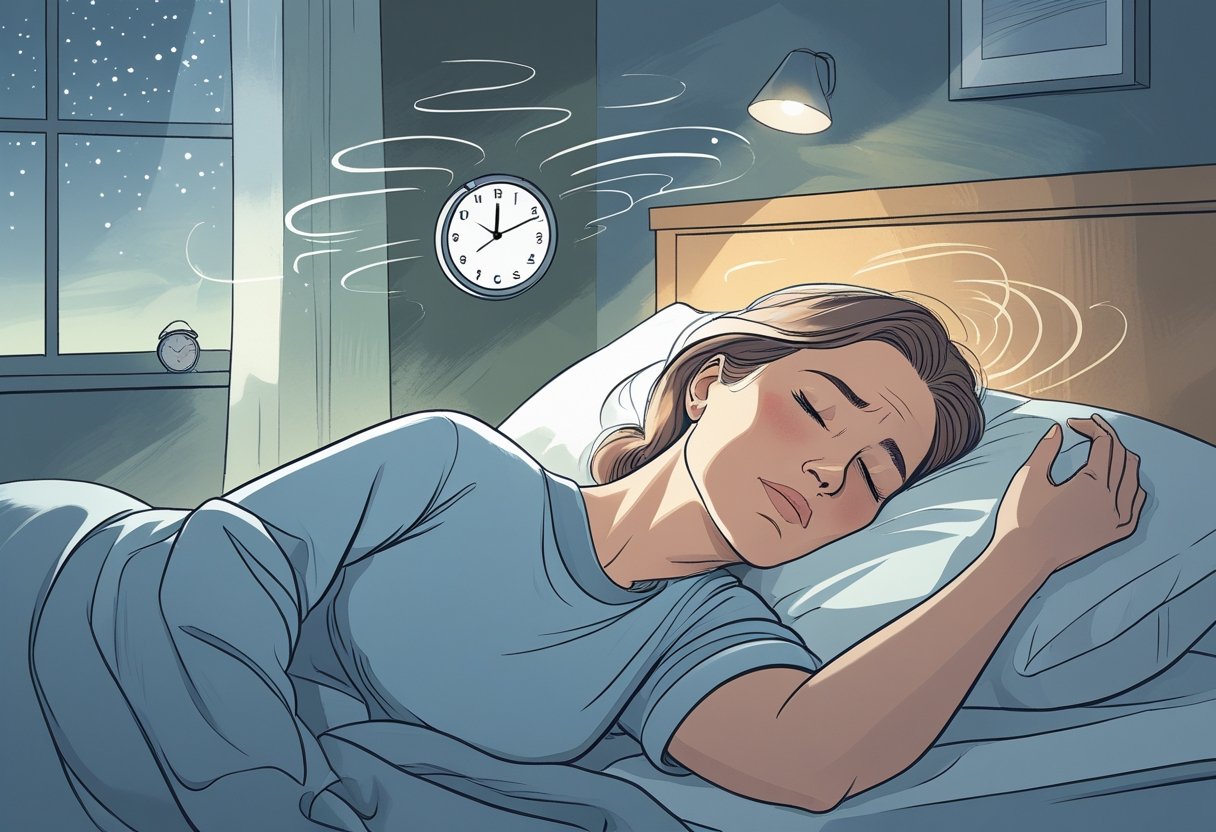
Symptoms and Manifestations of Sleep Disorders

Menopause brings specific sleep challenges linked to hormone fluctuations. These shifts disrupt sleep by making it harder to fall asleep, stay asleep, or feel rested the next day. Identifying these issues helps in exploring practical ways to improve sleep during this phase.
Challenges with Falling or Staying Asleep
Many women going through menopause report difficulty falling asleep or staying asleep through the night. Hot flashes and night sweats often trigger sudden awakenings. These interruptions break the sleep cycle and make it tough to reach deep, restorative sleep.
A drop in estrogen and progesterone levels affects how the body manages temperature and mood. This often leads to nighttime anxiety or physical restlessness. Some women spend long hours lying awake before drifting off. Outside factors like stress, caffeine intake, or an inconsistent sleep schedule can make things worse. A regular bedtime routine supports better sleep quality and makes it easier to fall asleep and stay asleep.
Daytime Effects and Fatigue
Interrupted sleep at night often leads to daytime fatigue and poor focus. Some women feel mentally foggy, emotionally off-balance, or unable to complete daily tasks efficiently. The overall impact on quality of life can be significant.
Fatigue during the day raises the chances of making mistakes or getting into accidents, especially at work or while driving. Long-term sleep loss may trigger irritability, low mood, or even depression. Conditions like sleep apnea can also develop or worsen but sometimes go unnoticed because symptoms overlap with menopause.
Managing daytime tiredness usually means improving nighttime habits first. When sleep doesn’t improve with lifestyle changes, a medical checkup can help rule out underlying sleep disorders.
Underlying Causes of Sleep Problems
Menopause causes several changes that affect sleep quality. The main reasons often include physical symptoms, mental health shifts, and health issues that tend to show up more during this stage of life.
Vasomotor Symptoms Including Hot Flashes
Hot flashes bring sudden waves of heat that usually come with sweating and discomfort. They occur due to hormonal shifts in menopause and often wake women multiple times a night, leading to broken sleep.
Night sweats, a common vasomotor symptom, also interrupt rest. Since the body struggles to regulate temperature during menopause, staying asleep becomes more difficult. These symptoms rank among the top reasons many women struggle to get deep, restorative sleep.
Finding ways to manage hot flashes often leads to better sleep. Keeping cool at night and trying treatments to reduce symptoms may help ease these disruptions.
Mood Changes and Mental Health
Menopause can trigger mood swings, anxiety, and depression, all of which contribute to sleep issues. These emotional changes may make it harder to quiet the mind or unwind before bed.
Lower estrogen levels affect brain chemicals that control both mood and sleep cycles. Because of this, women might wake up too early or have trouble falling asleep in the first place. Some also develop insomnia, which makes restful nights harder to achieve.
Mood-related issues tied to menopause can heighten the risk of sleep disorders. Managing emotional symptoms through therapy, lifestyle changes, or medication may help improve sleep. You can find more research on these connections in studies on menopause and sleep disorders.
Other Medical Conditions
As menopause progresses, it often comes with other health issues that interfere with sleep. One example is restless legs syndrome, which causes a strong urge to move the legs and disturbs rest. Hormonal changes may also worsen conditions like sleep apnea. Interrupted breathing during the night leads to frequent awakenings and poor-quality sleep.
Chronic pain, weight gain, and bladder problems, common during menopause, add even more challenges. Addressing these medical conditions, along with menopausal symptoms, tends to improve sleep overall.

Strategies for Improving Sleep During Menopause
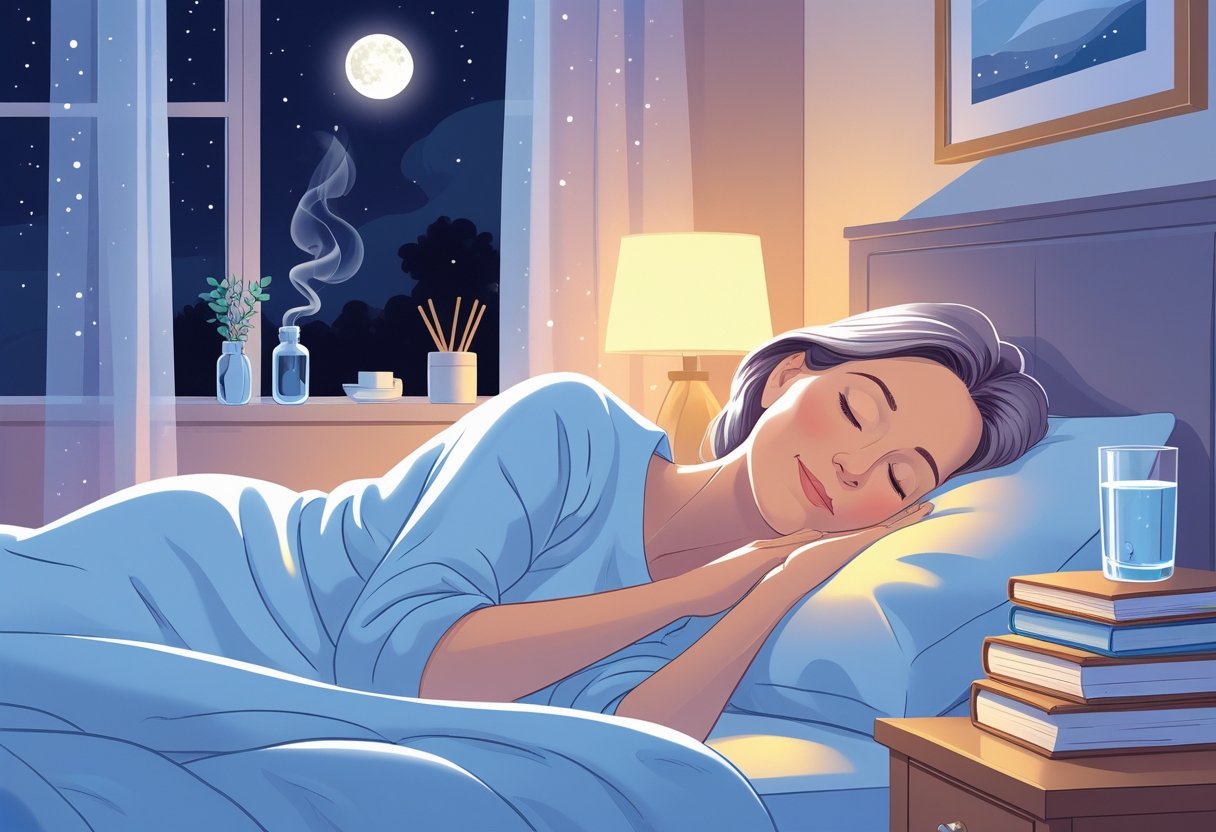
Menopause often brings changes that disrupt sleep, such as hot flashes and mood shifts. Tackling sleep problems during this time calls for solutions that address both physical and mental factors. Simple lifestyle adjustments, a better sleep setup, and targeted therapy can ease menopause-related insomnia.
Lifestyle Modifications
Changing daily routines may help relieve menopause sleep issues. Regular physical activity, especially aerobic or strength training, regulates body temperature and lowers stress levels. Still, intense workouts should be done earlier in the day since they may make it harder to fall asleep at night.
Diet is also important. Avoiding caffeine and heavy meals in the evening helps prevent sleep disturbances. Staying hydrated during the day while cutting back on fluids at night can reduce bathroom trips that interrupt rest.
Techniques like deep breathing or short meditation sessions calm the mind and reduce tension. Sticking to a regular sleep schedule keeps the body’s internal clock aligned and boosts sleep quality. Together, these steps can decrease both the frequency and intensity of hot flashes that often wake you up.
Sleep Hygiene Practices
Good sleep hygiene focuses on the bedroom setting and nighttime habits. The room should feel cool, dark, and quiet. Wearing breathable, natural fabrics can help control night sweats triggered by hormonal changes. Avoiding screen time before bed is key since blue light affects melatonin levels, which makes sleep harder to initiate. A calming bedtime routine, such as gentle stretching or reading, tells the body it’s time to wind down.
Keeping naps short and early in the day builds stronger sleep pressure for nighttime rest. Using the bed only for sleep or intimacy helps your brain associate it with relaxation instead of alertness. These habits support more restful sleep, even during menopause.
Cognitive Behavioral Therapy for Insomnia (CBT-I)
CBT-I provides a structured, non-drug approach for sleep issues tied to menopause. It aims to change behaviors and thoughts that keep insomnia going. A licensed therapist usually leads this method in either individual or group sessions.
This therapy includes strategies like stimulus control, which helps break the connection between the bed and wakefulness, and sleep restriction, which shortens time in bed to improve sleep efficiency. It also addresses negative thought patterns about sleep that can create anxiety and make falling asleep harder.
CBT-I treats the root causes of insomnia without medication. It targets both mental and physical barriers to sleep, providing lasting relief throughout menopause.
Medical Treatments and Therapies
Menopause often brings sleep disruptions like insomnia, usually linked to hormonal shifts and hot flashes. Medical treatments aim to ease these symptoms and restore better sleep. Options range from hormone therapy to medications that target various causes of menopause-related insomnia.
Hormone Replacement Therapy
Hormone replacement therapy (HRT) remains a common solution for menopause-related sleep issues. It replaces the estrogen lost during menopause, which triggers night sweats and hot flashes that interrupt sleep.
HRT is available in several forms, including pills, patches, and vaginal creams. By reducing hot flashes, it helps many women fall asleep more easily and stay asleep through the night. Still, it isn’t ideal for everyone, especially those with certain medical risks. Doctors usually recommend a full discussion of the pros and cons before starting HRT.
Ongoing monitoring is essential to fine-tune the dosage and check for side effects. HRT works best when hormone imbalance causes insomnia, rather than when other conditions affect sleep.
Prescription and Over-the-Counter Medications
Beyond HRT, other medications can ease menopause-related insomnia. Some prescription options—such as low-dose antidepressants or short-term sleep aids, directly improve sleep. Doctors often limit their use to avoid dependency.
Over-the-counter choices like melatonin or antihistamines may help, though they work in different ways and lack extensive research for menopause-specific sleep issues. Good sleep habits should support any medication to improve outcomes.
Doctors might also recommend cognitive behavioral therapy for insomnia (CBT-I), a non-drug approach that targets habits and thoughts that disrupt sleep. In many cases, combining treatments provides the most effective relief.
How the Right Mattress Can Ease Menopausal Sleep Disruptions
Menopause disrupts sleep with symptoms like hot flashes, night sweats, and joint pain. These issues make it tough to stay comfortable throughout the night. The right mattress can ease some of that discomfort.
A mattress built for temperature regulation makes a difference. It improves airflow and helps prevent overheating from hot flashes or night sweats. Materials that breathe well allow for a cooler, more comfortable sleep, which can lead to fewer disruptions overnight.
Comfort and support matter just as much. Menopause can bring on sore joints and stiff muscles. A mattress that cushions pressure points can ease these aches, making it easier to fall asleep and wake up feeling more rested.
Here’s what to look for in a mattress during menopause:
- Cooling technology: Reduces hot flashes and night sweats
- Pressure relief: Eases aches and joint pain
- Breathable fabric: Improves airflow and temperature control
- Medium-firm support: Balances comfort with proper spine alignment
The Bear Star Hybrid mattress combines cooling gel foam with individually wrapped coils to deliver both breathability and targeted support. Its design helps regulate temperature throughout the night while providing pressure relief, which makes it a great choice for those facing menopause-related sleep challenges.
Built with multiple comfort layers, including responsive foam and gel-infused memory foam, the Bear Star Hybrid adapts to your body’s shape while maintaining spinal alignment. The hybrid coil system enhances airflow, reduces motion transfer, and adds durability, for a balanced feel that supports restful sleep during menopause.
While a mattress won’t eliminate all symptoms, it can provide physical comfort and improve sleep quality during menopause.

Frequently Asked Questions
Menopausal sleep problems include difficulty falling asleep, waking up early, or staying asleep. Hormonal changes, anxiety, and hot flashes play major roles in these issues. Various natural remedies, medications, and lifestyle adjustments can help improve sleep quality.

